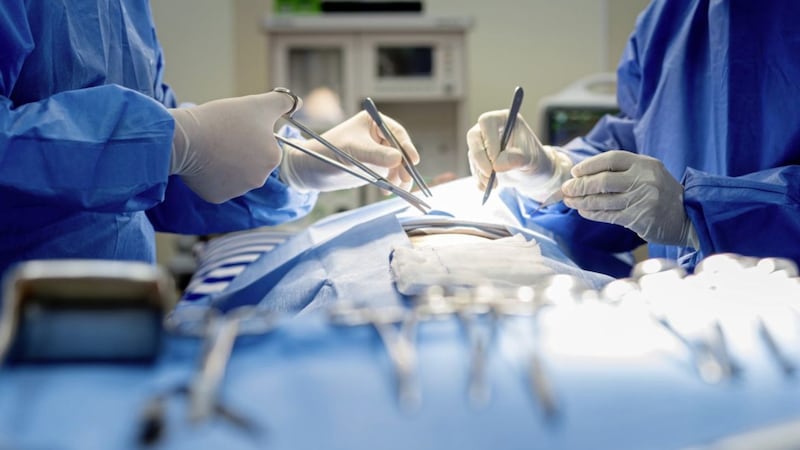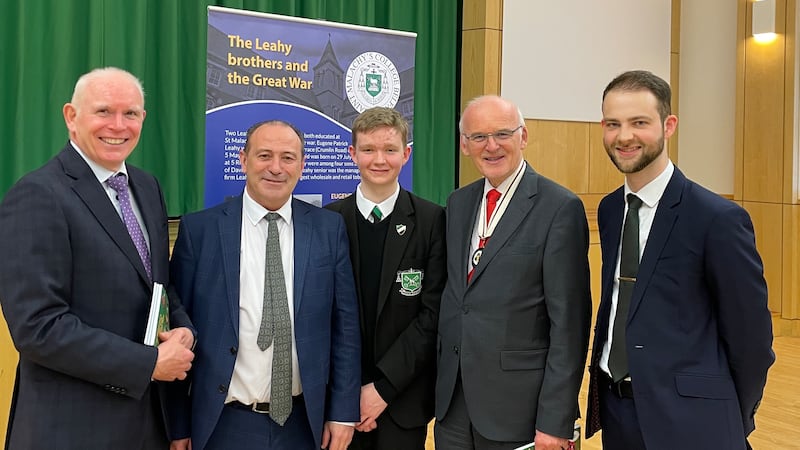An inability to roll over funds into the coming financial year has forced the health service to hand back £90 million in the midst of the pandemic, Robin Swann has said.
Mr Swann told MLAs he could have spent five times the returned sum if he was allowed to retain it beyond March 31.
The health minister said the non-recurrent funding model, which sees his department receive money on a year-to-year basis, was hampering his ability to take action to tackle the north's spiralling waiting lists.
He said it particularly limited his ability to outsource treatment to the private sector, as independent providers needed more certainty on future revenue streams to enable them to hire more staff and expand facilities.
Mr Swann was fielding an Assembly question on the Department of Health's reliance on private sector providers to undertake surgeries that have been delayed due to the pandemic.
DUP MLA Gary Middleton said some members of the public would "find it difficult to understand how there could be an underspend given the pressures".
Mr Swann replied: "If I had flexibility that I could roll into next year, into the further year, or actually have a multi-year budget, I could have utilised that money five times over.
"But the difficulties in our accounting system, the fact that we're in a one-year budget that is non-recurring, puts that additional challenge of being able to spend."
Mr Swann said Finance Minister Conor Murphy was seeking to secure flexibility from the Treasury to enable Stormont to roll money over.
Read more: More than £200 million of Covid-19 support funding 'not spent by Stormont departments'
The minister said between April and December, the department had procured treatment for 3,900 patients in Northern Ireland's three independent private sector hospitals using health service consultants.
He said an additional 112 private sector theatre sessions had been secured to deal with urgent cancer and other time critical operations.
The minister said some private sector facilities in the Irish Republic were also being used to treat health service patients from Northern Ireland.
Mr Swann told MLAs that there had been more capacity in the independent sector in earlier waves of the pandemic as the providers had been experiencing a drop off in demand for services from private patients.
He said that was no longer the case, highlighting that private sector hospitals were now experiencing increased demand on services, limiting the ability of the Department of Health to procure treatment.
The minister said the private sector was a "critical tool" in his department's work to reduce all waiting lists.
"We can only go to those private sectors with a one-year allocation, a one-year pot, and what they need to increase their capacity to help reduce our waiting lists is actually that surety of three to five years' funding, so they can increase their facilities, increase their staff to actually start to eat into our waiting lists," he said.
Sinn Féin's Pat Sheehan, who tabled the urgent ministerial question on use of private sector capacity, said the department had not done enough to establish what was on offer from independent providers.
"Can the minister tell us why he didn't scope out capacity in the private sector, before the health trust made an announcement about the cancellations of treatment because this has made the situation all the more worse for those patients who do have that diagnosis of cancer," he said.
Last week, Mr Sheehan faced criticism after he expressed concern that 100-plus Army medics being deployed to support hospital staff in Northern Ireland could "get in the way of the real professionals". Read more
Ulster Unionist MLA Alan Chambers asked Mr Swann for his reaction to Mr Sheehan's remarks on the military.
The minister insisted the medics would be appropriately trained and inducted before starting work.
"These will be a welcome addition to our workforce at a time when they need critical support as we work through this third surge where we are seeing over 800 patients currently inpatients and over 70 people in ICU at this minute in time, so all help is welcome," said Mr Swann.







